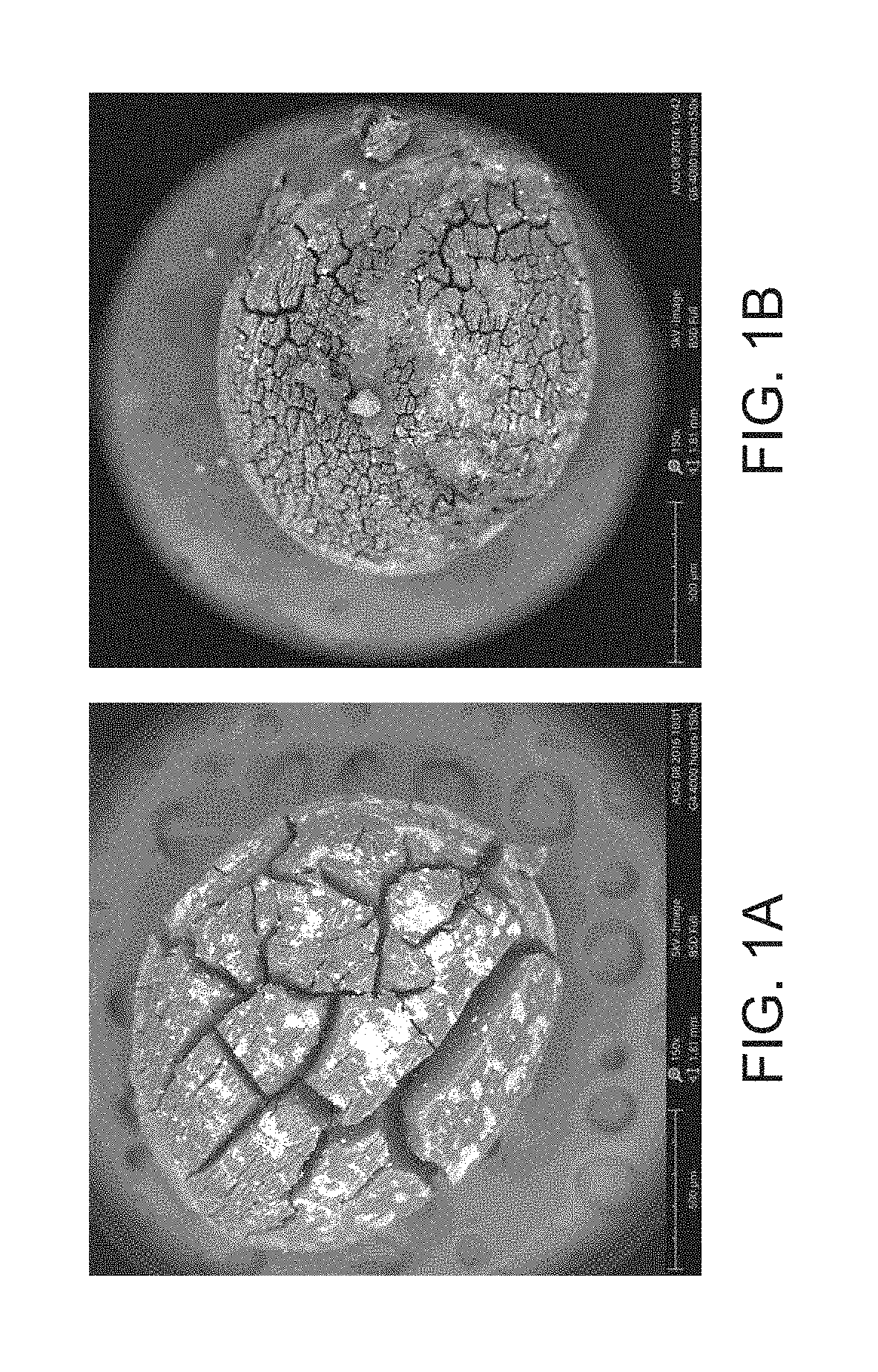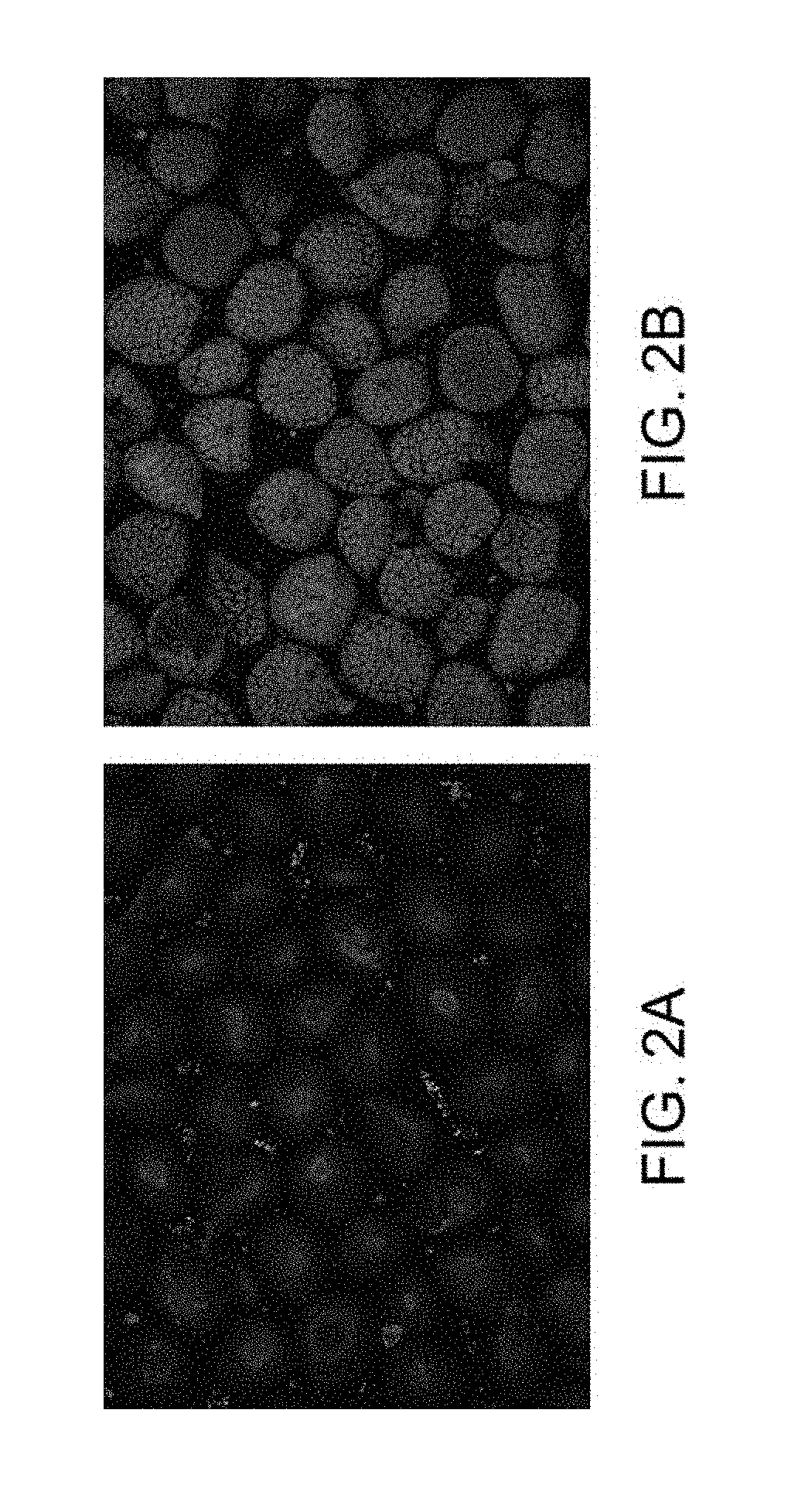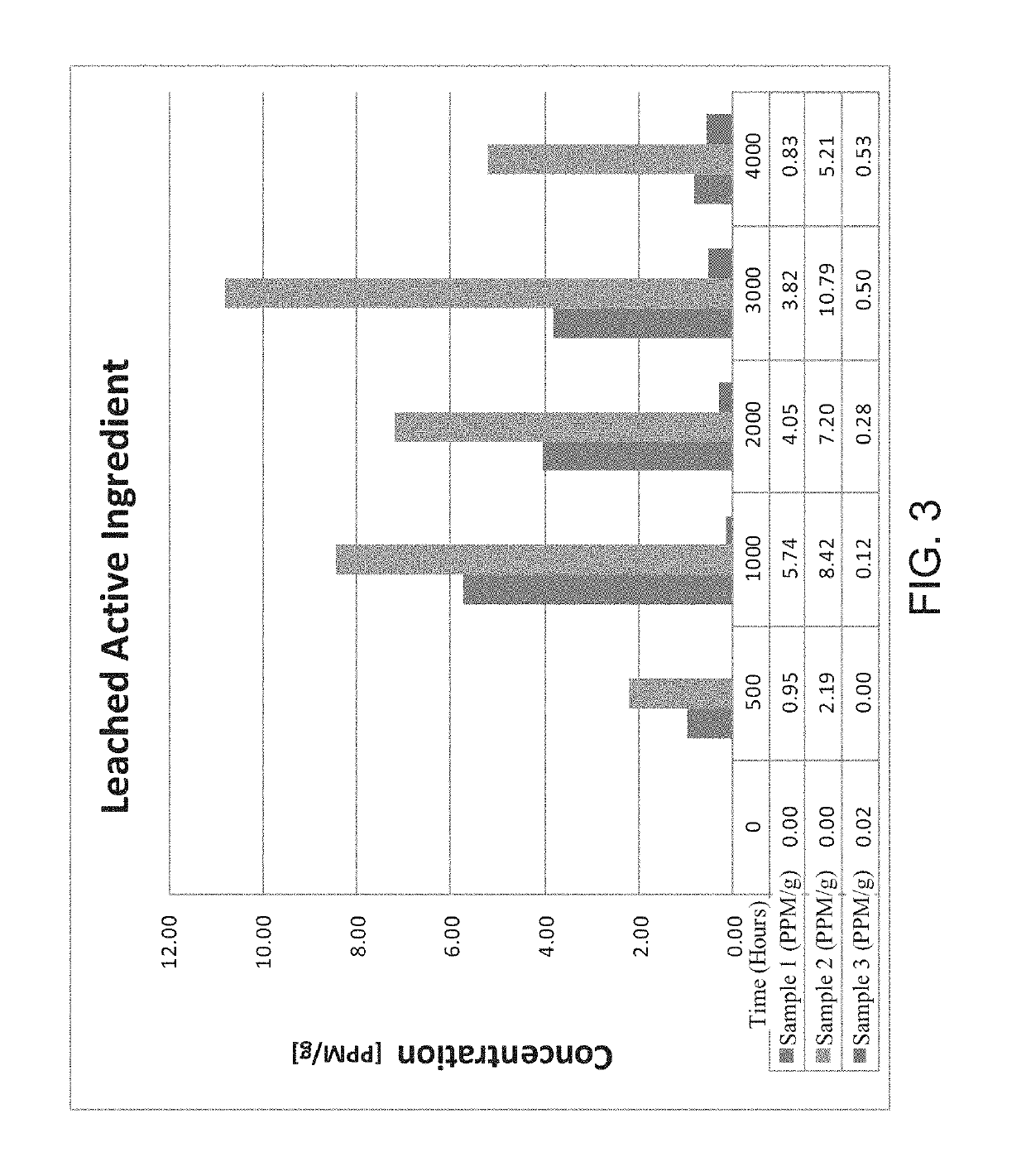Polymeric functionalized roofing pellets
a technology of polymer and functionalized pellets, applied in the field of roofing products, can solve the problems of limiting the type of active ingredient, reducing the access to active ingredients, and reducing the release of active ingredients
- Summary
- Abstract
- Description
- Claims
- Application Information
AI Technical Summary
Benefits of technology
Problems solved by technology
Method used
Image
Examples
example embodiments
[0039]In some embodiments of the present disclosure, an active ingredient is an antimicrobial agent which may desirably increase algae resistance and prevent or slow a growth of algae and microorganisms on a roofing product. In some embodiments, an antimicrobial agent may be cuprous oxide. Other suitable antimicrobial agents may be one or more metal oxides, metal powders, powders of metal alloys, copper compounds, metal sulfides, metal salts, organo-metallic compounds, known antimicrobial products, and combinations thereof. Examples of metal powders include, but are not limited to, zinc, copper, lead, tin, bronze, nickel, cadmium, or silver. Examples of metal compounds include, but are not limited to, zinc borate or barium metaborate. Various other antimicrobial agents may be incorporated as an active ingredient without departing from the scope of the present disclosure.
[0040]In some embodiments of the present disclosure, an active ingredient is a fire suppressant, flame retardant, ...
example 1
l Aging of Pellets of Various Polymer Compositions
[0052]Two roofing pellet samples comprising different polymer bases were artificially aged by about 4,000 hours. The two roofing pellet samples were artificially aged by first hand applying each pellet sample to an asphaltic sheet, wherein the sheets were individually placed inside an Atlas Ci4000 Weather-Ometer and exposed according to ASTM G155 Cycle 1. Sample sheets were removed and photographed after various exposure times (up to about 4000 hr). At each exposure time a single pellet from each sample sheet was removed from the exposed area of the sample and mounted on a stage for evaluation using a NanoScience Instruments Phenom ProX scanning electron microscope. FIG. 1A depicts a scanning electron microscopy image of a pellet comprising polyethylene and a copper source, wherein the pellet has been aged by about 4,000 hours. FIG. 1B depicts a scanning electron microscopy image of a pellet comprising polypropylene and a copper sour...
example 2
d Aged Polypropylene Roofing Pellets
[0053]A roofing pellet sample comprising polypropylene and a microbial agent was treated to conditions to artificially age the roofing pellet sample by about 4,000 hours. FIG. 2B depicts a photographic image of a roofing pellet sample that was artificially aged, wherein FIG. 2A depicts a control sample that was not artificially aged.
PUM
| Property | Measurement | Unit |
|---|---|---|
| Temperature | aaaaa | aaaaa |
| Temperature | aaaaa | aaaaa |
| Temperature | aaaaa | aaaaa |
Abstract
Description
Claims
Application Information
 Login to View More
Login to View More - R&D
- Intellectual Property
- Life Sciences
- Materials
- Tech Scout
- Unparalleled Data Quality
- Higher Quality Content
- 60% Fewer Hallucinations
Browse by: Latest US Patents, China's latest patents, Technical Efficacy Thesaurus, Application Domain, Technology Topic, Popular Technical Reports.
© 2025 PatSnap. All rights reserved.Legal|Privacy policy|Modern Slavery Act Transparency Statement|Sitemap|About US| Contact US: help@patsnap.com



